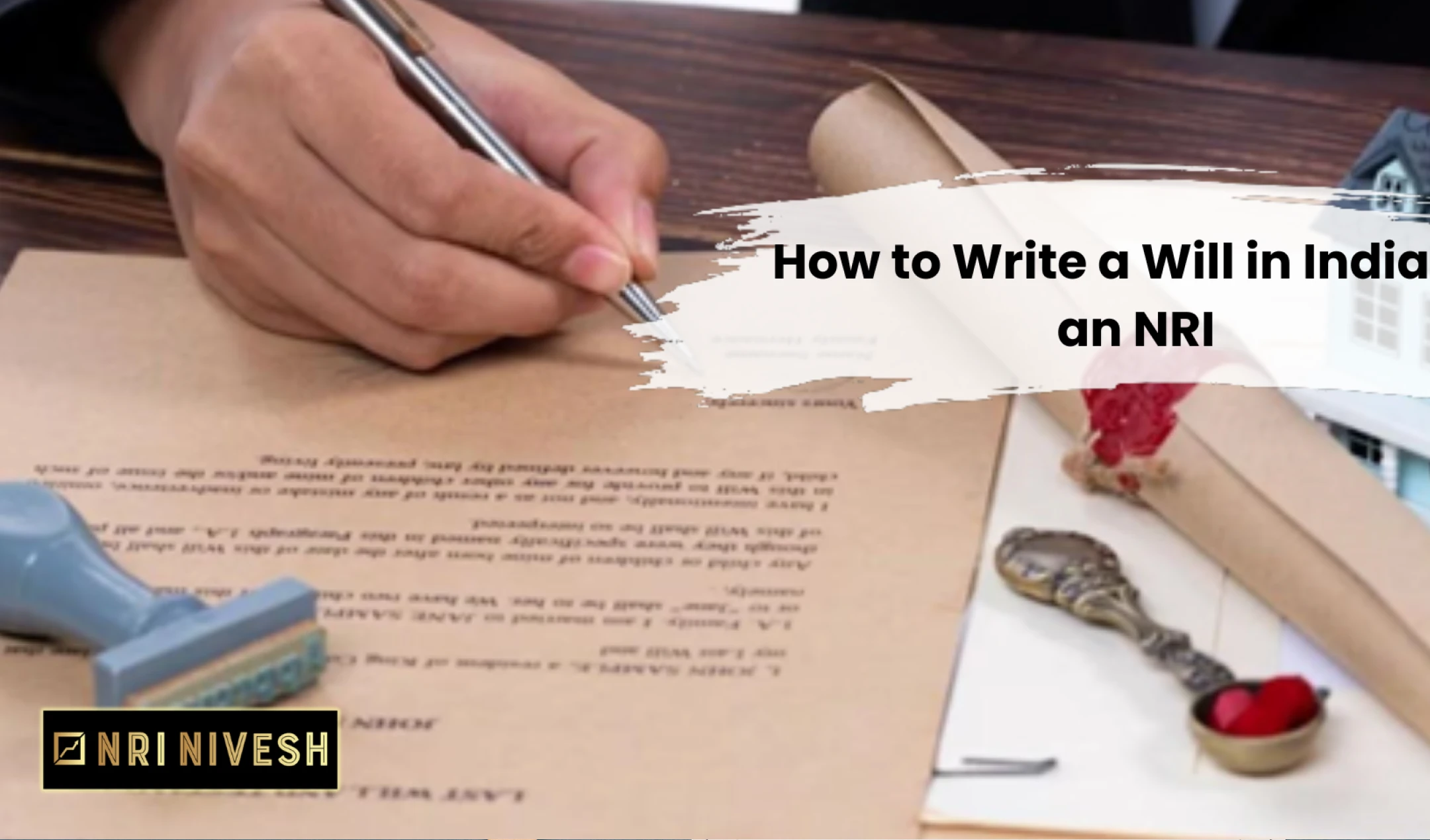If you’re an NRI with property, investments, or assets in India — having a legally valid Will is one of the smartest financial moves you can make. Here’s how to write one that holds up in Indian courts, avoids family disputes, and ensures your legacy reaches the right hands.
Why NRIs Need a Will for Assets in India
Many NRIs mistakenly assume that Indian inheritance laws will take care of asset distribution. But here’s the truth:
- Indian succession laws vary based on religion
- Dying intestate (without a Will) can lead to long legal battles
- A clear, registered Will ensures your assets are transferred smoothly, and as per your wishes
Whether you own a flat in Mumbai, ancestral land in Kerala, or mutual funds in India — you need a proper estate plan.
✍ Step-by-Step Guide to Writing a Will in India as an NRI
1. List Your Assets in India
Include:
- Real estate (residential, agricultural)
- Bank accounts (NRO, NRE)
- Mutual funds and stocks
- Insurance policies
- Jewelry, art, or other valuables
📌 Tip: Make a separate Will for foreign assets, governed by that country’s laws.
2. Choose the Right Beneficiaries
Mention names clearly with:
- Relationship to you
- Passport numbers (if applicable)
- Country of residence
👉 Be specific: “To my daughter Ananya Sharma, currently residing in Singapore…”
Avoid vague references like “my children” or “my family.”
3. Appoint an Executor
This is the person who will implement your Will after your death.
Choose someone:
- Trustworthy
- Familiar with Indian legal systems (or with access to a lawyer)
- Willing to take on the responsibility
✅ NRIs often appoint a family member in India or a legal firm.
4. Write It Clearly and Legally
A Will in India must:
- Be in writing
- State that you are of sound mind and not under duress
- Include your full name, address, date, and signature
Avoid legal jargon — clarity is more important than complexity.
5. Sign in the Presence of Two Witnesses
They should:
- Be present when you sign
- Not be beneficiaries
- Ideally reside in India (for legal convenience)
Their full names, addresses, and signatures must be included.
6. Get It Registered (Optional, but Recommended)
Registration is not mandatory, but it helps prevent:
- Forgery
- Legal disputes
- Loss or destruction of the document
📝 You can register your Will with the Sub-Registrar in India. You do not have to be physically present — it can be done via Power of Attorney.
7. Store It Securely
Keep it:
- In a locker or safe deposit
- With your lawyer
- Digitally scanned with secure access
📌 Let your executor or spouse know where it’s kept.
💬 Bonus Tip: Can I Write a Will While Living Abroad?
Yes — you can draft and sign your Will abroad, but:
- It should still comply with Indian laws
- Use apostille or notarization as per the Indian Embassy’s guidance
- Registration in India (via Power of Attorney) is still recommended for legal strength
🛡 NRI Nivesh: Estate Planning Done Right
With clients across Singapore, Abu Dhabi, Nairobi, Jakarta, Germany, and Bangkok, we help NRIs:
- Draft Wills that hold up in Indian courts
- Navigate succession laws based on religion and region
- Appoint executors and register documents in India without travel
Our estate planning advisory ensures your assets pass on with dignity, not delay.
❓Have You Created a Will Yet?
A Will doesn’t mean expecting the worst — it means protecting what you’ve built.
Need help creating your Indian Will while living abroad? Let’s talk.
Plan smart. Protect your legacy. NRI Nivesh is with you at every step.






